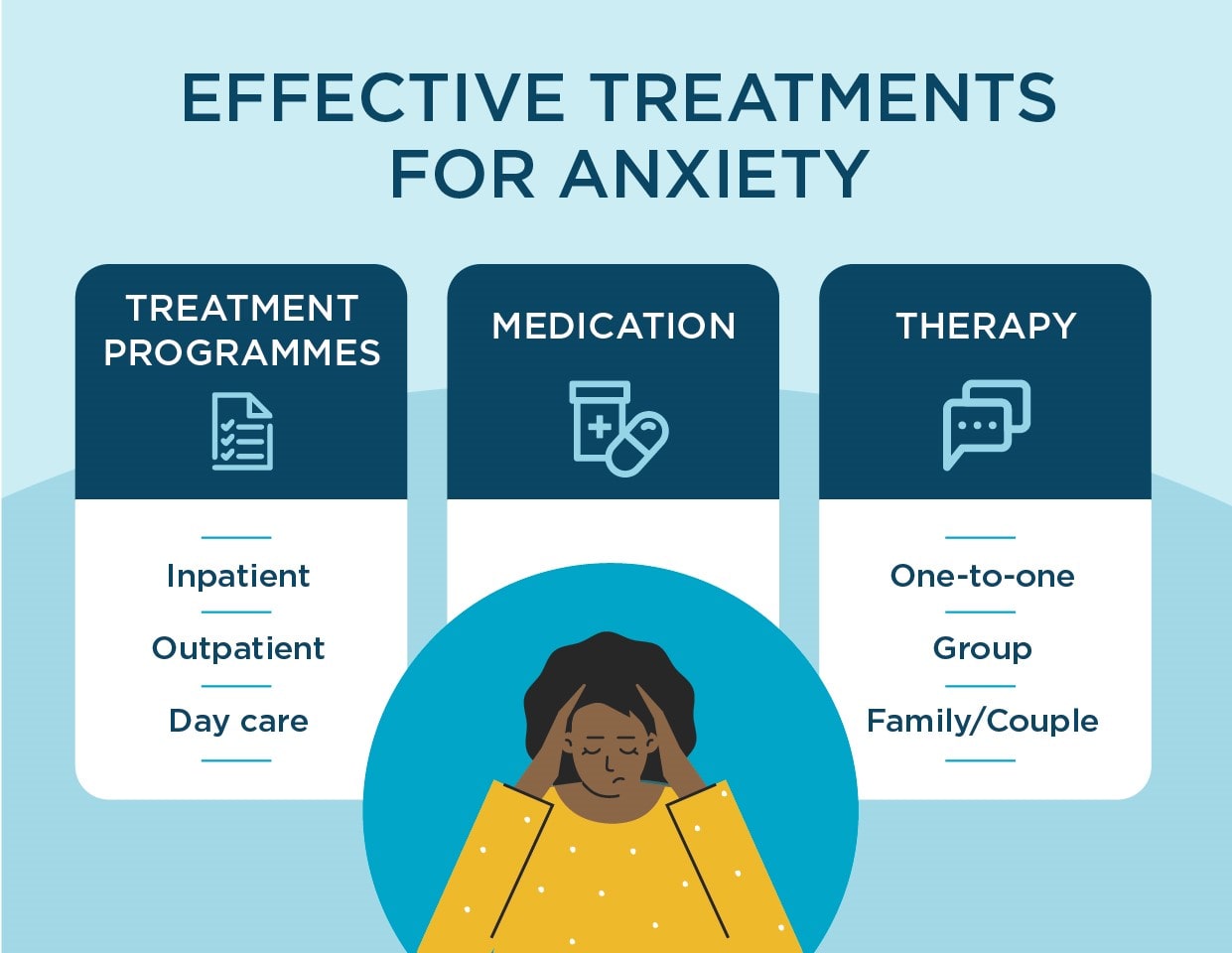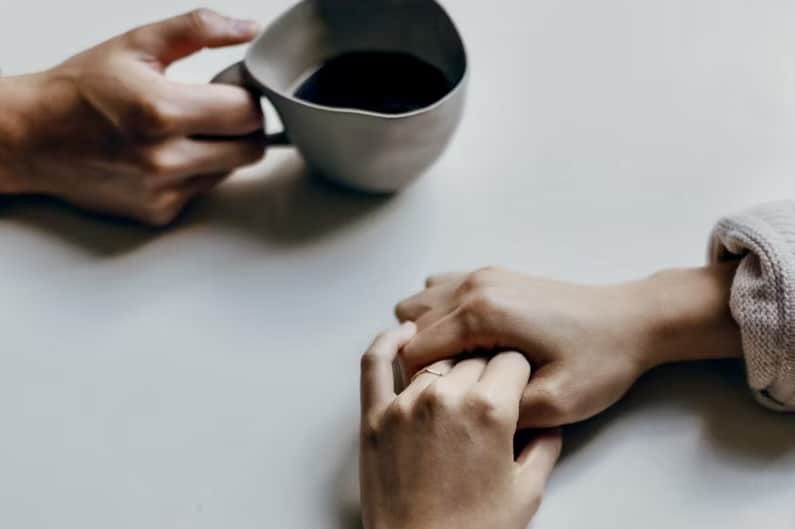Exploring Various Methods in Therapy for Anxiety Condition for Enduring Modification
When dealing with anxiety conditions, it's necessary to check out a range of counseling techniques. Each approach uses distinct understandings and devices to aid you handle your signs and symptoms effectively. You may find that integrating methods can produce the best results. Nevertheless, comprehending the nuances of these methods is essential to promoting long lasting adjustment. What if the best combination could launch a new degree of emotional well-being for you?
Comprehending Anxiousness Disorders: A Brief Introduction
Stress and anxiety problems, which affect millions of individuals worldwide, can greatly impact daily life. You might experience overwhelming feelings of concern or fret that appear unmanageable. These sensations can cause physical symptoms like an auto racing heart, sweating, or even lightheadedness. Common sorts of stress and anxiety disorders include generalised anxiousness problem, panic attack, and social anxiousness problem. Each has unique indications, however they all share a tendency to disrupt your routine and relationships.Understanding the source of your stress and anxiety is essential. It could stem from genetics, brain chemistry, or life experiences. Acknowledging your triggers can help you manage your actions much better. It's important to bear in mind that you're not alone in this struggle. Lots of people encounter similar challenges, and seeking aid is a solid step toward feeling much better. By learning concerning stress and anxiety conditions, you're already on the course to understanding and handling your condition more efficiently.
Cognitive-Behavioral Treatment: Testing Negative Idea Patterns
In Cognitive-Behavioral Therapy, you'll begin by determining the negative idea sets off that contribute to your anxiety. Once you acknowledge these thoughts, you'll work on replacing them with even more favorable options. With each other, you'll develop reliable coping techniques to aid manage your anxiousness in day-to-day scenarios.
Determining Adverse Idea Triggers

Acknowledging the specific triggers behind your negative thoughts can be important in managing anxiety when you encounter moments of distress. Beginning by focusing on circumstances that prompt sensations of fear or worry. Is it a crowded room, an upcoming target date, or a conversation with certain people? Jot down these circumstances in a journal. This will help you recognize patterns in your reasoning. Notification physical experiences that accompany your adverse ideas, like an auto racing heart or rigidity in your breast. By pinpointing these triggers, you gain understanding right into what's sustaining your anxiety. Understanding these connections is the very first step in testing those ideas and ultimately reclaiming control over your emotional actions.
Replacing Ideas With Positives
Challenging unfavorable thought patterns is a necessary step in changing your attitude and lowering anxiety. You may frequently discover on your own caught in cycles of insecurity or catastrophic thinking. Rather of allowing these thoughts dictate your sensations, method changing them with practical alternatives or positive affirmations. For example, when you assume, "I can't manage this," move it to, "I can take care of obstacles one step at once." This basic change can significantly impact your emotion. Routinely recognizing and countering these negative thoughts aids create a healthier inner dialogue. Remember, it takes some time and initiative, but continually practicing this technique can result in long-term change, equipping you to deal with stress and anxiety with restored confidence and resilience.
Structure Coping Techniques Together
Changing unfavorable thoughts is just the start of managing stress and anxiety properly. To produce long lasting modification, you need to construct coping techniques that empower you. Cognitive-Behavioral Therapy (CBT) helps you determine and challenge those unhelpful idea patterns. With each other, you and your counselor can explore exactly how these thoughts impact your sensations and behaviors.Start by developing functional methods, like journaling or mindfulness workouts, that enable you to confront stress and anxiety head-on. When you face your worries gradually, you'll find out to respond in different ways.

Mindfulness and Acceptance-Based Approaches: Cultivating Present-Moment Awareness
As you navigate the intricacies of anxiety, incorporating mindfulness and acceptance-based strategies can considerably enhance your ability to grow present-moment awareness. By focusing on the right here and now, you'll discover that you can observe your thoughts and sensations without judgment (Counseling services for anxiety). This practice assists you recognize your anxiety without feeling bewildered by it.Engaging in mindfulness exercises, such as deep breathing, body scans, or directed reflections, allows you to ground yourself in your present experience. Acceptance-based methods urge you to embrace your emotions instead of battle against them. They lose their power over you.Incorporating these techniques right into your everyday regimen can transform exactly how you respond to anxiousness when you accept your sensations. You'll establish resilience and find out to browse stressful scenarios with better ease. Inevitably, growing present-moment understanding lays the foundation for lasting modification, encouraging you to lead a more fulfilling life
Direct Exposure Treatment: Confronting Fears Slowly
Direct exposure therapy helps you confront your worries in a steady way, making it less frustrating. You'll find out techniques to deal with anxiety-provoking circumstances action by step, while likewise developing coping strategies to manage your responses. This approach equips you to take control and lower stress and anxiety gradually.
Progressive Exposure Techniques

When facing anxiety, progressively challenging your worries can be an effective method to restore control. This technique, recognized as progressive direct exposure, entails slowly revealing on your own to the situations or things that activate your anxiousness. Start with much less intimidating circumstances and slowly function your method approximately even more challenging ones. For example, if you're terrified of public talking, you could begin by talking in front of a mirror, then advance to sharing ideas with a friend, and eventually attend to a little team. Each step helps desensitize you to the anxiety, constructing your confidence in time. Bear in mind, it's important to pace yourself and commemorate little success as you move through this process, reinforcing your capacity to take care of stress and anxiety successfully.
Building Coping Strategies
Building efficient coping approaches is important for taking care of stress and anxiety, specifically as you face your worries slowly - Counseling services for anxiety. One powerful technique is direct exposure treatment, where you start by facing your fears in a regulated way. Start with much less intimidating circumstances and gradually work your way approximately more challenging situations. This progressive direct exposure assists desensitize you to anxiousness sets off, making them less overwhelming.Incorporate leisure techniques, such as deep breathing or mindfulness, to soothe your mind during direct exposure. Track your progression, celebrating tiny triumphes in the process to enhance your self-confidence. Bear in mind, it's all right to take your time; the objective isn't perfection but stable enhancement. By developing these strategies, you'll equip yourself to navigate anxiousness and accept life a lot more totally
Psychodynamic Treatment: Discovering Source of Stress And Anxiety
Psychodynamic therapy discovers the unconscious mind, revealing the root causes of your anxiety. By examining your thoughts, sensations, and previous experiences, this approach helps you reveal underlying conflicts and unresolved concerns that might contribute to your present anxiousness. You'll function with a therapist to check out childhood years experiences, partnerships, and emotional patterns that form your reactions today.As you acquire insight right into these much deeper layers of your mind, you'll start to acknowledge exactly here how past events influence your present behavior. This understanding can cause catharsis, enabling you to process feelings you might have suppressed.Through the therapeutic partnership, you can likewise recognize defense reaction that might have established in time, using a clearer path to alter. Eventually, psychodynamic treatment outfits you with the devices to resolve your stress and anxiety at its core, promoting enduring improvement in your emotional health.
Integrative and All Natural Methods: Combining Strategies for Greater Efficiency
Integrating different healing techniques can enhance your trip toward managing anxiousness better. By combining aspects from cognitive-behavioral therapy, mindfulness techniques, and alternative methods, you can create a personalized strategy that resolves your one-of-a-kind demands. You might make use of cognitive-behavioral strategies to challenge unfavorable thought patterns while integrating mindfulness exercises to ground yourself in the existing moment.Additionally, checking out all natural techniques such as yoga or meditation can advertise leisure and decrease stress and anxiety signs and symptoms. This blend allows you to create higher self-awareness and resilience.Experimenting with these diverse methods can help you uncover what reverberates most with you. Remember, it has to do with locating a synergy that works, as opposed to sticking to a solitary method. This integrative method not just offers immediate relief yet also promotes long-term abilities for managing anxiousness, equipping you to reclaim control over your life.
The Duty of Support Equipments: Building Resilience Via Link
While it might appear that taking care of anxiety is a solitary journey, having a solid support system can play a necessary function in your resilience. Surrounding on your own with understanding close friends, household, or assistance teams creates a safe space where you can openly share your experiences and sensations. When you get in touch with others, you advise on your own that you're not alone in this struggle.These relationships use support and can supply functional coping approaches that have actually worked for others. It's likewise a possibility to obtain point of view; friends can aid you see circumstances in a different way, minimizing sensations of isolation.Moreover, psychological assistance cultivates a feeling of belonging, which can significantly alleviate anxiousness signs. By leaning on your support system, you can build resilience and tackle challenges much more successfully. Remember, reaching out for help suggests stamina, and it can make all the distinction in your trip toward handling anxiousness.
Regularly Asked Concerns
What Are the Typical Signs of Anxiety Problems?
You may experience uneasyness, fatigue, problem focusing, impatience, muscle tension, and rest disruptions. Physical signs and symptoms can consist of quick heartbeat, sweating, and trembling. Acknowledging these signs early can help you seek appropriate support and therapy.
The Length Of Time Does Therapy Normally Last for Anxiousness Disorders?
Therapy for stress and anxiety problems generally lasts anywhere from a few weeks to several months. It actually relies on your individual demands, progression, and the methods your specialist makes use of to assist you handle your anxiety effectively.
Can Medicine Be Made Use Of Together With Therapy for Anxiousness?
Yes, medication can absolutely be used alongside therapy for anxiousness. Integrating both techniques frequently improves therapy performance, assisting you manage signs and symptoms while exploring underlying issues through counseling (Counseling services for anxiety). Always consult your medical care provider for customized suggestions
Are There Self-Help Methods for Managing Anxiousness?
Yes, there are numerous self-help strategies for handling stress and anxiety. You can practice mindfulness, take part in normal exercise, preserve a well balanced diet plan, develop a regular, and make use of deep breathing strategies to help reduce anxiety symptoms properly.
Exactly how Do I Know if I Required Professional Aid for Anxiousness?
